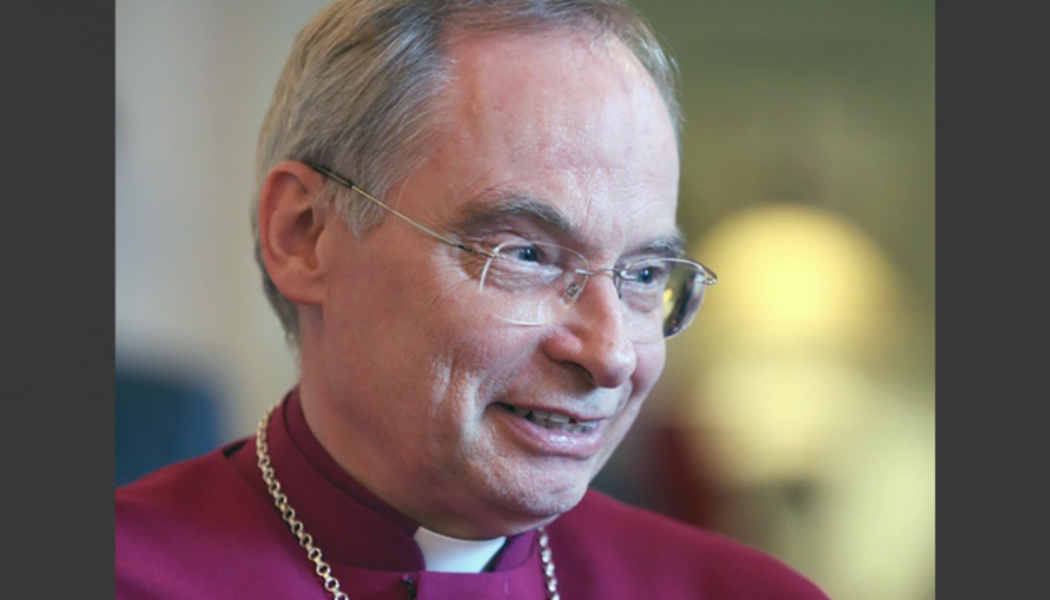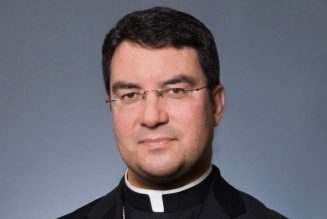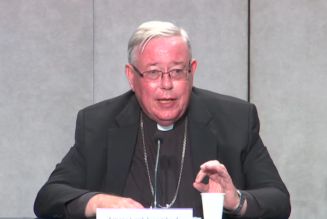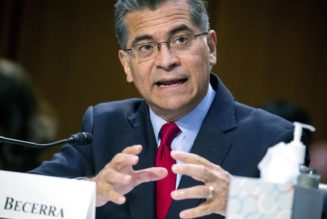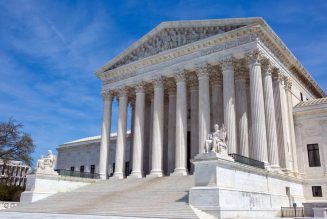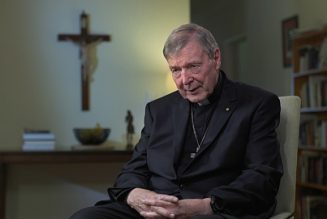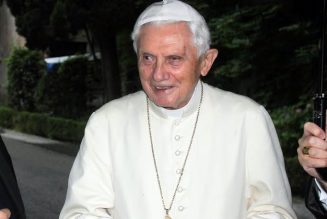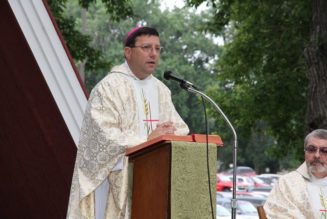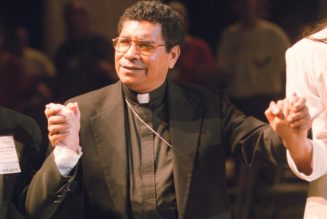
On July 2, Richard Pain became the 11th such bishop to be received into the Church.
“I honestly feel I have arrived home,” says Richard Pain, who, on July 2, became the 11th former Anglican bishop — and the first Anglican bishop of Wales — to be received into the Catholic Church through the Personal Ordinariate of Our Lady of Walsingham since its creation in 2011.
In July 18 comments to the Register, the former Bishop of Monmouth in Wales discussed his journey to the Catholic Church and explained how, although he has found “a delightful home” in the Personal Ordinariate of Our Lady of Walsingham, he does not see becoming a Catholic as “a panacea for those disillusioned by Anglicanism” but as “a step in the right direction for me personally.”
Born in London in 1956, Pain was ordained an Anglican priest in the Church in Wales at Newport Cathedral in 1986. He served all his ministry in the diocese of Monmouth, much of it in forming clergy, and was elected bishop of Monmouth in 2013. Married with two sons, he retired as bishop of Monmouth in 2019.
Of the 11 former Anglican bishops who have been received into the Catholic Church since 2011, eight have entered the Ordinariate of Our Lady of Walsingham and three have joined a diocese. So far, nine have been ordained to the priesthood.
What led you to becoming an Anglican clergyman and how did you become a Church of Wales bishop?
My vocation started when I was about 13 and was nurtured by being a server at the local Anglican church. I believed God was calling me to be a priest and I followed the formation pathway, which eventually led me to being ordained in the Church in Wales. My ministry as a priest was centered around Monmouthshire, South Wales, and I served in parishes and then became an archdeacon. I was also greatly involved in the discernment and selection of clergy across Wales.
In the Church in Wales you are elected a bishop by the electoral college which comprises of clerical and lay representatives from the six dioceses of the province. It is a great honor to be elected by such a widely diverse group of Christians.
Can you tell us about your journey into being received into the Catholic Church — what attracted you to the Catholic Church and led you to this decision?
I retired from being a bishop on grounds of ill health and it took a couple of years to recuperate. Thankfully I am well again and the time out of ministry gave me an opportunity to reflect afresh upon my spiritual journey. As a High Anglican, I have always been drawn to the Catholic Church. The spiritual culture is very similar with many local variations.
Personally, it did not take much of a leap of faith to become Catholic. Yes, there is an adjustment in teaching and emphasis but the formation is mainly spiritual in context and thankfully I am not engaged in the politics. At one level I am surprised how easy it is to make the decision and I honestly feel I have arrived home.
Some have expressed surprise that so many former Anglican bishops have become Catholic when the Catholic Church appears to be undergoing similar struggles to the Anglican Communion during this pontificate. What reasons would you give for this?
I have, not unsurprisingly, reflected upon the internal struggles of the Catholic Church and how they mirror the long and painful discussions in Anglicanism. Much of it gathers around our response to the spirit of the age. The Church of England, in its role as the established church, has been particularly aware of the changes in attitude in religion and morality and has tried to address them and offer a way forward that remains biblically aligned and in the spirit of the church’s tradition.
The Catholic Church also has a series of mechanisms to navigate the present day challenges and the charism of the Pope is essential for stability and unity. There is a weight, a gravitas, to the Catholic way which suggests that although it can change (as it did with Vatican II) it will do so without tearing itself apart. The danger is when people hold entrenched positions and do not seek genuine dialogue. It is very brave of Pope Francis to offer a process of synodality. Obviously he believes that God can work through the various voices. I just hope and pray that synodality begins in the life of the Holy Trinity, so there has to be more silence and attentive listening for the process to flourish.
Do you foresee other Anglican leaders in Wales and elsewhere being received into the Catholic Church in the coming years?
I cannot speak for others on such a personal matter. The forecast suggests a trickle rather than a downpour.
How do you see your future role in the Catholic Church? Do you hope to be ordained a priest within the Ordinariate of Our Lady of Walsingham?
I am finding a delightful home in the ordinariate: The welcome has been warm and open. Like so many parishes, the clergy are very busy and if I may become an assistant priest and prove useful, then let’s see if that’s God’s will.
The Anglican archbishop of York said recently that the Our Father has patriarchal connotations and is therefore “problematic.” Do you see such statements as a catalyst for Anglican clergy and laity to return home to the Catholic Church?
I know there was a backlash from the archbishop’s statement and I can see he wants to be open to those who are affected by patriarchal language. I sympathize but somehow we need to move people to see God in his mysterious being which is neither male nor female. The Catechism teaching on God the Father makes this clear. Prayer which opens us to God’s love and healing transcends and redeems our experience and our relationships. To be fair, the archbishop’s address centered more on the word our father as he reminded us that we are united in the Lord’s Prayer.
He spoke in the context of his recent encounter with Pope Francis and said that the Our Father is a dangerous prayer because it guides us towards unity which is transformative. Such statements can only act as a catalyst if you are making up your mind where you belong.
To what extent do you see true ecumenism as a return to the Catholic Church?
In terms of true ecumenism, although acknowledging the richness of my Anglican heritage and experience, I am inclined to consider turning to the Catholic Church is a step in the right direction for me personally. It’s another matter to consider denominational unity. Anglicanism may appear as a branch that came away from the Catholic Church but it has grown and developed towards its own identity which envelops many theological positions and structures. Likewise, it is not as if the Catholic Church has remained the same and the struggles within have been highlighted by the synodical process. Both Anglican and Catholic Churches are trying to work out how to be in the world and yet also present an authentic gospel. There is commonality in the struggle but not unity. Learning to live in the presence of Christ’s body is our way forward.
What advice would you give to other Anglican clergy and laity thinking of swimming the Tiber, especially those who have become disenchanted with the Church of England and Wales?
As I have indicated, coming to Rome is not a panacea for those disillusioned by Anglicanism. You still face some hard thinking and praying about what God is doing in his Church as he redeems the world. What is clearer to me is that you cannot come only as an individual, wanting the Church to fit your world view. Giving yourself into the life of the Church and recognizing its authority and believing in its integrity as the holder of truth and as the way of life requires faith and trust. But that applies to life-long Catholics as it does to fresh converts.
